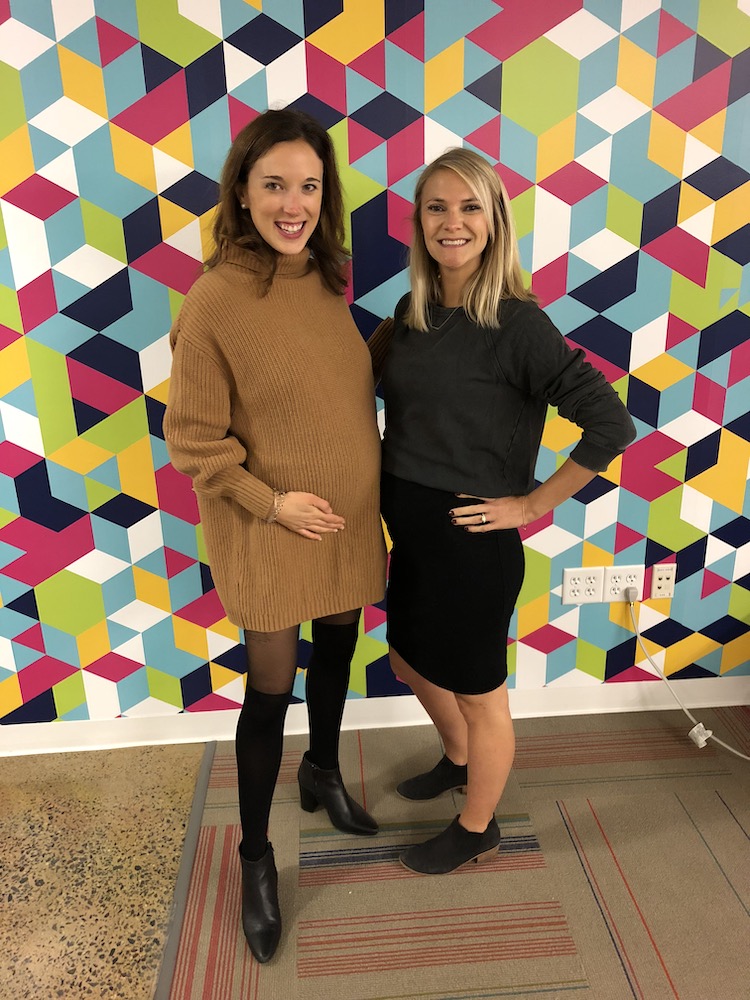In our “Starter Story” series we invite femtech founders to share their stories of how it all began. How did they come up with the idea? Where did they meet their cofounders and what was the hardest part of going from 0 to 1?
In today’s Starter Story we get to share Posy’s founding story as told by Co-founder Caitlin Nelson. Posy‘s mission is to help women along their fertility journeys, making the process more accessible and less lonely through their app and community.

When did the idea for your startup first come up?
Posy began to take shape almost 2.5 years ago, when Emily Ellis and I, co-founders, met at our former employer, SocialCode, a DC-based media agency. Quickly we bonded and soon realized we both were internalizing and shouldering the burdens, stress, and sometimes shame brought on by fertility. At the time, we both were trying to conceive via supported treatments like IUI and IVF. We shared our frustrations around how daunting, unorganized, and isolating the whole process was. Additionally, we were shocked by the lack of trusted resources and tools available.
When and how did you decide to take the plunge and turn your idea into a business?
Finding solace in one another, we began to realize how big of a gap there was in the market to support women/families like us. There were countless period trackers, ovulation trackers, wearables, thermometers, etc. but nothing that was built to help us with our specific needs. We had meds to administer and track that continued to change over our cycle, we had countless lab and ultrasound appointments, and further, we were constantly seeking trusted content, stories, and a community of others who understood how and what we were going through. We began making a wish list… what were all the aspects of our journeys that we were tracking, monitoring and seeking. We began in a shared excel doc- adding tabs by topic, doing research, and understanding the stats of people undergoing fertility treatments when it dawned on us… There’s a huge gap in the market and why not solve this ourselves and ensure no other women nor family struggle the way we did. Our backgrounds in marketing, sales, and operations aligned well to organize our thoughts in a meaningful way, to really build Posy with the utmost consideration for those like us, trying to build a family.
How did you meet your co-founder?
I met Emily Ellis at our former employer, SocialCode (now called Code3). I was VP of Sales and Emily, Director of Operations. Working at a fast-paced company, stress was par for the course. But add trying to conceive, then trying to conceive and fertility treatments, we began to share what was going on personally and found comfort in one another along the way. It quickly brought us closer and we scheduled weekly, sometimes daily, check-ins at work just to vent and share what part of the process we were in.
What were the biggest challenges for you personally and your company going from 0 to 1?
Right as the idea for Posy came to be, Emily and I both became pregnant and to top it off, had started new jobs. Fast forward to when we began taking our ideas to wireframes, then finally to a developer in Turkey, we were full-time working first-time moms. Juggling motherhood, wellness, relationships, and working for leading technology companies (Caitlin at Narrative I/O and Emily Ellis at Lyft). Our early mornings consisted of google hangouts while tackling diaper changes and feedings, trying to divide and conquer our to-do-list to keep the ball rolling. Whether it was 6 am or 8 pm, weekday or weekend, we found time and ways to connect to get Posy off the ground.
Do you have any advice for others, who are just getting started?
Get your ideas out of your head and on paper. Connect with friends and accept all help that’s offered your way. Don’t be afraid to expand your idea, let it evolve to be more inclusive or less inclusive depending on the need. And find someone to partner with. If I were to have tried to do this by myself, I guarantee my thoughts would still be sitting in a lost google file on my drive, always wondering if it would have gone anywhere.



